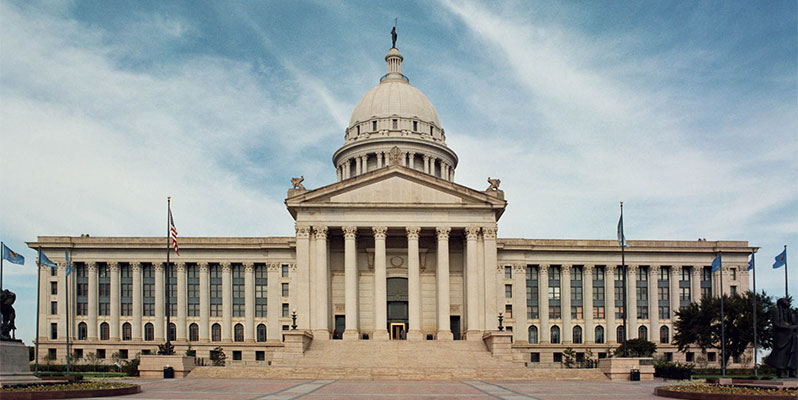
Much like 2022 when Governor Kevin Stitt called the legislature into a special session over the concept of cutting taxes- the Governor has called another special session that happens today- October 3rd- and has similarities to 2022- but does offer some different twists.
Oklahoma Farm Report’s Ron Hays talked with Steve Thompson of the Oklahoma Farm Bureau on the eve of the Special Session- and Thompson says it’s unlikely that any definitive action will come out of the special session- but lawmakers will have to consider what is ahead for Oklahoma if the Federal Courts decide tribal members don’t have to pay state income tax- and that conversation could be a major topic in the next general session in early 2024. He believes that the result of a similar call by the Governor in 2022 about a personal state income tax cut may be what may happen again in 2023- not much. He adds that the general farm organization is concerned about higher property taxes if the Governor is successful in lowering or even eliminating personal income taxes.
The Governor’s special session call is for three purposes:
- To create a statutory trigger which automatically eliminates any tax assessed by the state or its political subdivisions if that same tax is found by a state or federal court to be inapplicable to any individual by virtue of their race, heritage, or political classification;
- To deliver Oklahomans a personal state income tax cut — one that puts the state on a pathway to zero personal state income taxes;
- To increase transparency in the legislative budget making process.
According to NonDoc- “Stitt’s proposed “trigger” scenario refers to the Stroble v. Oklahoma Tax Commission case pending before the state Supreme Court. Appellant Alicia Stroble, a Muscogee (Creek) Nation citizen, argues that federal law and state code clearly exempt her from state income tax assessed against her pay from entities controlled by her tribe on its reservation.”
Stitt’s third item in his special session call included five bullet points, which appear verbatim below:
- Requirement that no general appropriations bill or spending limits bill shall be acted upon by the Legislature, or any committee thereof, without first being made publicly available for consideration in its final form for at least three legislative days;
- Provide statutory definitions for recurring revenue, non-recurring revenue, recurring expense and non-recurring expense;
- Require the designation of expenditure type and revenue source as recurring or non-recurring in any proposed legislation that involves the expenditure of any revenue, regardless of source;
- Require any legislatively directed spending be explicitly included in any general appropriations bill or spending limits bill; and
- Prohibit any member or employee of the Legislature from directly or indirectly attempting to influence agency expenditures outside of the legislative process.














